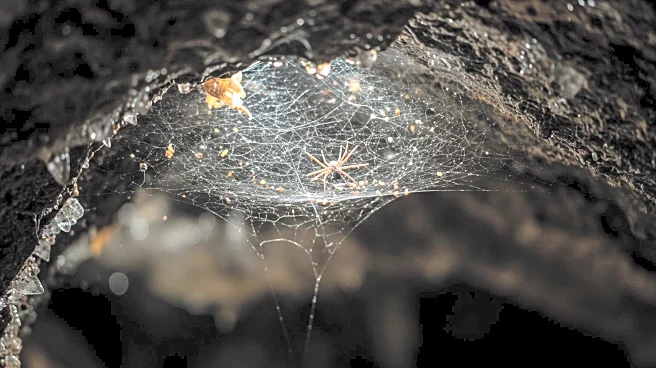What is the story about?
What's Happening?
A research team has published the first chromosome-level genome assembly of the troglophilic spider Pimoa clavata, which is endemic to natural caves in Beijing's mountainous regions. This spider species is known for its unique evolutionary adaptations to cave environments, including morphological reduction and sensory specialization. The genome assembly, estimated to be 1.94 Gb in size, was achieved using an integrated sequencing approach involving PacBio HiFi long reads and Hi-C chromatin conformation data. The assembly metrics indicate high completeness and continuity, making it one of the highest-quality spider genomes available. The genome is dominated by repetitive elements, with DNA transposons and LTR retrotransposons being particularly abundant. This research provides valuable insights into the genomic signatures of habitat transition under climatic pressure.
Why It's Important?
The publication of the Pimoa clavata genome assembly is significant for evolutionary biology and climate change studies. As a climate-vulnerable relict species, Pimoa clavata offers a unique opportunity to study the genomic adaptations that enable survival in stable microhabitats like caves. Understanding these adaptations can shed light on how species might respond to contemporary warming trends and habitat fragmentation. The research also contributes to the broader field of arachnid genomics, providing a high-quality reference genome that can facilitate further studies on genetic diversity, evolutionary processes, and conservation strategies for cave-dwelling species.
















